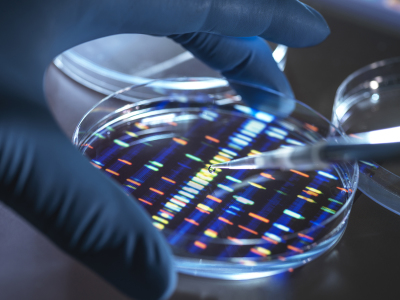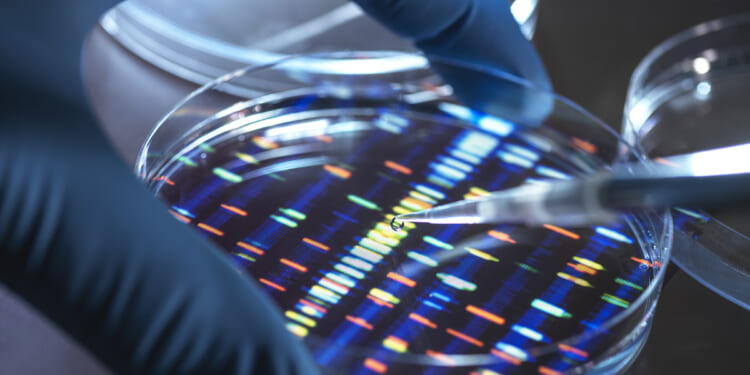
According to reports in The Wall Street Journal, billionaires in Silicon Valley are trying to expand the frontiers of genetic engineering in the eternal quest to create genetically engineered human beings with enhanced intelligence and traits preferred in different cultures.
Editing genes in sperm, eggs and embryos is currently banned in the United States. The current effort by Preventive, a Silicon Valley startup, involves a couple with a genetic abnormality who want to participate in producing a genetically engineered embryo.
Scientists are currently employing technologies for treating genetic birth defects (including edited and inserted DNA after birth, but not before birth).
In fact, scientists and medical ethicists have been calling “for a global moratorium until the ethical and scientific questions get resolved.”
Preventive is the harbinger of other efforts in Silicon Valley and beyond that are pushing all boundaries in the areas of genetic engineering and reproductive technologies. The stated goal is one of attempting to cure genetic diseases and genetic birth defects. The stated goal is to produce babies “who are free of genetic disease and resilient against illnesses.”
The shadow looming over all the experimentation, however, is the specter of eugenics (the study of how to arrange reproduction within a human population to increase the occurrence of heritable characteristics regarded as desirable).
Scientific attempts to identify, manipulate, and engineer genes in sperm, female eggs and embryos are fraught with huge ethical and moral issues. The commercial appeal is clear. Many parents would pay large sums of money to have a genetically enhanced child, one guaranteed to be mentally and physically superior to the previous norm.
First, which human beings are going to decide which genetic traits are to be preferred and which are not? Treating known genetic defects to make a child normal is one thing. To seek to artificially enhance IQ or musical or athletic ability is quite another matter entirely.
In attempting to play God (a fatal attraction for many human beings), we will inevitably fail because we are flawed human beings, not the infinite Heavenly Father. Which traits should be enhanced and what should be culled out of the human genome?
These efforts to artificially enhance the human genome bring to mind the 1997 science fiction film “Gattaca” starring Ethan Hawke, Uma Thurman, Alan Arkin and Jude Law. The film portrays a time in the future when humanity is divided into two groups — those who were genetically engineered in conception and those who were created the “natural” way. Those not genetically engineered are second-class citizens, precluded from prestigious jobs like astronauts.
“Gattaca” is a space training academy and a station that sends astronauts on long-term exploratory voyages into space.
The movie’s hero was a “defective” born the natural way who has a heart defect, yet wants to be an astronaut. He has no chance unless he can secure a “ladder,” someone who was conceived through genetic engineering who will let him assume his genetic identity. He secures such a ladder, a brilliant young man who has been permanently incapacitated by a terrible accident. By becoming a successful astronaut, the hero proves that “you can’t always judge a book by its cover.” Genetic screening does not measure desire, drive, or commitment — in other words, the human spirit.
There are two scenes in the movie that particularly made this point. The first was when the defective’s brother, who was conceived through genetic engineering, gets into a swimming contest with his brother, and inexplicably, the brother outperforms his genetically “superior” brother. In frustration, the genetically engineered brother asks, “How are you doing this? How are you doing any of this?” The answer, of course, is desire and commitment, which can’t be reduced to genes or scientific “X’s” and “O’s.”
The second scene is at the very end of the film, and the crew (with the “defective” as navigator) is faced with one final unscheduled genetic test before boarding the spaceship. Anticipating that he will be caught and disqualified (which he is not because of a sympathetic lab technician), who says, “Just remember. I was as good as any, and better than most.”
When we start trying to engineer human beings, we are in way over our heads ethically and morally. If we allow this research to proceed without the closest monitoring, we are inviting heartbreaking tragedies in the not-too-distant future.
You cannot reduce the human spirit to a scientific equation!
Dr. Richard Land, BA (Princeton, magna cum laude); D.Phil. (Oxford); Th.M (New Orleans Seminary). Dr. Land served as President of Southern Evangelical Seminary from July 2013 until July 2021. Upon his retirement, he was honored as President Emeritus and he continues to serve as an Adjunct Professor of Theology & Ethics. Dr. Land previously served as President of the Southern Baptist Convention’s Ethics & Religious Liberty Commission (1988-2013) where he was also honored as President Emeritus upon his retirement. Dr. Land has also served as an Executive Editor and columnist for The Christian Post since 2011.
Dr. Land explores many timely and critical topics in his daily radio feature, “Bringing Every Thought Captive,” and in his weekly column for CP.

















